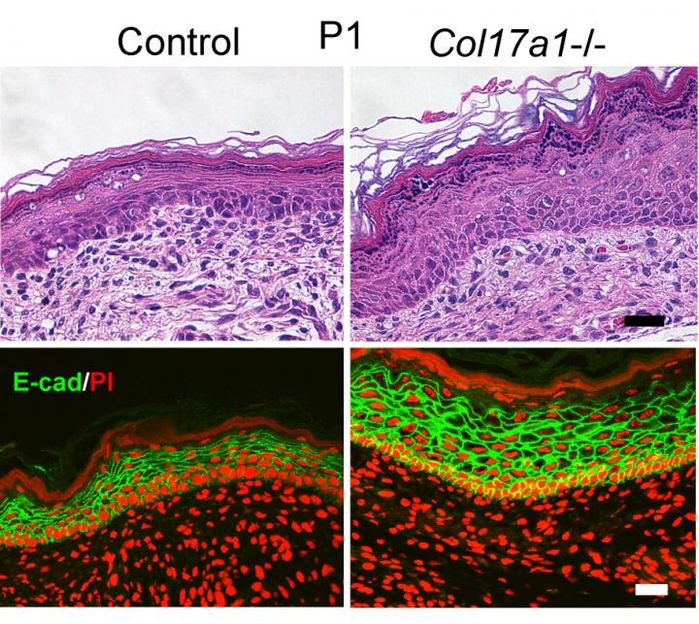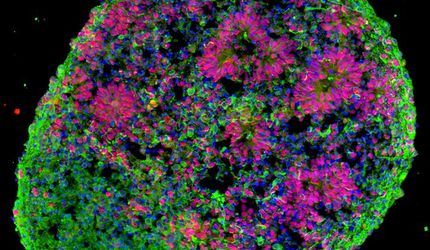Collagen controlling the thickness and juvenile state of skin
Advertisement
Type XVII collagen (COL17) is found to regulate the proliferation of epidermal cells and therefore the thickness of juvenile and aged skin, suggesting COL17 can potentially be used for future anti-aging strategies.

Neonatal mice (postnatal day 1) lacking COL17 showed epidermal hyper proliferation and thickened skin (right panels) compared to control skins (left panels). Different staining methods are applied in the upper panels and the lower panels. Scale bar: 20μm.
Watanabe M., et al. eLIFE, July 11, 2017.
Skin is the body's largest organ and is constantly confronted with a range of external stimuli including microorganisms and physical stress. Epidermis, the outer part of the skin, functions as a barrier to the external environment and works to prevent the loss of water from inside the body. As abnormalities in epidermal thickness can impair the properties of one's skin, the proliferation of epidermal cells is tightly regulated in organismal development and physical aging although most of the underlying mechanisms are unknown.
Using mouse and human skin cells as well as mathematical modelling, Dr. Ken Natsuga and Dr. Hiroshi Shimizu of Hokkaido University and their collaborators identified type XVII collagen (COL17), a protein expressed in the basal layer of the epidermis, as a key molecule that controls epidermal proliferation in non-haired skin.
The team found that COL17 prevents the epidermal cells from over-proliferating and thus preventing the skin from thickening in neonatal mice in coordination with Wnt signaling, which is generally involved in the proliferation of stem cells. In the experiments using mice, they also discovered that physical aging induces epidermal thickening and alters epithelial polarity accompanied by drastic alteration of COL17 distribution in the skin. Introduction of human COL17 helped the epidermis maintain its juvenile state even with the advancement of aging.
"Our findings advance our understanding of how the proliferation of epidermal cells is regulated at different stages of a mammal's life. Although further study is needed to uncover how COL17 expression is regulated, this protein could be a promising component in future anti-aging strategies for skin," says Natsuga.























































